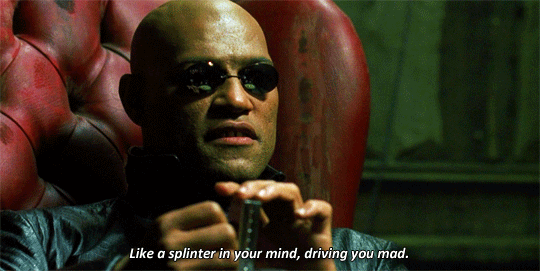The Go / No-Go Decision: Why it’s One of the Most Important Skills to Learn

We work with a lot of entrepreneurs and product teams that want to build something, and one of the challenges they face is whether to proceed with their idea and plan. It’s not always easy to know which way to go, but I hope we can shed some light on how to make these decisions better. Obviously, decision-making is a skillset that is important for anyone in business, but Go / No-Go decisions are very different, primarily because of the monumental consequences of them.
The Risk of Falling in Love With an Idea
When we work with entrepreneurs, often they have fallen in love with their idea. It’s a passion, and maybe an idea that’s been in their minds for years. When they reach us, they are often ready to go and start building their product.

If you quiz them about what analysis they used to reach their decision to move forward, it’s often that they just believe it’s a great idea with little to back it up.
These intuition-based product development decisions are the highest risk, and the ones that are most likely to fail. Of course, we all know startups that caught lightning in a bottle based on an idea, but those are few and far between, and the vast majority of these will not survive in the long run.
By the way, there is nothing wrong with ideas – they are the spark that lights the fire. But if it’s the only thing that you are relying on, then you introduce tremendous risk.
Falling in Love With the Problem
Falling in love with an idea can lead to bad decisions, but a better approach is to fall in love with the problem first! What do we mean by that? By falling in love with the problem, we are focusing on the pain points of the customer and their unmet needs. Only then can we craft solutions that align with those needs, and find Problem / Solution fit.
To be clear, there isn’t anything wrong with ideas. Building a product is a creative process that sometimes is at odds with analysis, which is exactly why you need to impose some analytics and data to the decision to move forward with something or not.
It’s not one Go / No-Go decision, but a series of them.
Don’t think of the Go / No-Go decision as a singular one-time event, but a series of decisions, each of which is a checkpoint on your journey. Data and discovery should drive these decisions, not your wish for your idea to be a good one!
Let’s say you have an idea for a new digital product. You think you have seen the need for it, and you are not aware of any direct competitors doing exactly what your product would do. This is how almost all new product ideas come to light, but there is a lot of work to do before you can say you are ready to start building a product.
Every situation and opportunity is different, but there are some common things that are foundational to building great products, and here are some of those processes that can help you make good Go / No-Go decisions:
Talk to Your Customers
Do a deep discovery on their problems and pain points with the goal of figuring out Problem / Solution fit. Is the problem a big one, or just something that they are not excited about? You do this with interviews and conversations, not surveys. This is, in some ways, the most important first step you can take, and one that is foundational to everything that comes thereafter.
Is it Viable?
This is a harder question to answer. You can’t just solve a problem, but you must determine if the problem is big enough to get adoption and satisfy the requirement of having business viability. If you solve a problem, but there are forces that block adoption, it’s not viable.
Analyze the Market
How big of an opportunity is it? Figure out the TAM, SAM, SOM and see if the market is big enough to warrant further exploration. And keep in mind, a niche market can be a great one. You don’t have to have enormous markets to have a viable product.
Is it feasible?
Do you have the ability to pull it off? That includes capital, time, skills, team, and tech. And a lot more, too.
Each of those points have one or more checkpoints for your Go / No-Go decision. If you can’t answer those affirmatively, then you should stand down or rethink your approach.
For example, if in your customer discovery, they are not as enthusiastic as you are, it could be that your idea isn’t strong enough. You can either pivot and refactor your idea or decide it’s a no-go. As you go through each of these discovery points, a decision to go to the next step should be made consciously, and purposefully.
Be Prepared to Let Go
One important thing that entrepreneurs need to be able to do is to let go if it’s not in the stars. If, after you have done your analysis and the risk is too high, then you need to shelve your idea. Maybe it’s not the right time. Maybe you need more funds. Maybe you need to build your team. But whatever those things are, if you can’t reasonably overcome them, let your idea go. At least for now.
This is the responsibility you have as an entrepreneur and a founder. It’s on you to make those tough calls. If you have done your homework, and all lights are green, that’s fantastic. But if not, you owe it to yourself, your team, and your investors to make the decision to let it go.

Unfortunately, all too often we see founders that have indeed built something that fails to find traction in the market, or they run out of money, or they couldn’t get a handle on the tech. And while nothing is guaranteed, most of these failures could have been averted, and that’s tragic.
We have an obligation to be good stewards of ideas, intellectual property, and capital. Sometimes that entails telling someone they are not ready, and to go back and do your homework.
Conclusion
Go / No-Go decisions are not a one-time event, but a series. It’s like climbing a ladder, and at each step you need to measure what you have discovered using data and analytics. Only then can you make good decisions.
Schedule Your Free Strategic Project Review & Project Brief
Developing great digital products is our passion. Not sure how to start that journey? Let us help you find the right path. Schedule a free 1-hour consultation with our team. At the end we’ll deliver a Project Brief that will help you to crystalize your vision.
